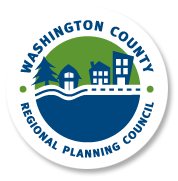Economic Development
Like many municipalities, Washington County towns are faced with issues of funding education, supporting community services, and encouraging economic growth without depleting natural and cultural resources or compromising community character.
Ensuring a sound economic future requires thoughtfully planned development. The Washington County Regional Planning Council strives to encourage sustainable economic growth that supports communities, schools, and citizens while mitigating negative impacts associated with growth.
To that end, the South County Sustainable Economy Report, undertaken in partnership with Grow Smart Rhode Island and funded by a grant from the Doris Duke Charitable Foundation and Rhode Island Office of Municipal Affairs, evaluated the region’s possibilities for economic growth while maintaining the local character and valuable natural and cultural resources. The Sustainable Economy report, presented to towns and state leaders in January 2003, provided a history of development and the economy in the region, projected future growth trends, and presented an array of opportunities and challenges impacting economic development in the county, including the extreme property tax burden, housing, and tourism. The final report, including recommendations for towns and the Washington County Regional Planning Council, will be available to Washington County municipalities, and is available upon request.
In pursuit of sustainable economic development issues, the WCRPC will:
- Host informational sessions with local, regional, and state experts in support of long-term efforts to reform education funding, and to find supplemental alternatives to the property tax.
- Seek out opportunities for coalition-building around alternatives to the property tax issue.
- Participate in completion of the South County Sustainable Economy Project, and work to assure maximum implementation.
- Support sustainable tourism research and projects, working with South County Tourism Council, University of Rhode Island (URI), URI Coastal Resources Center/ Rhode Island Sea Grant, and Johnson & Wales University.
